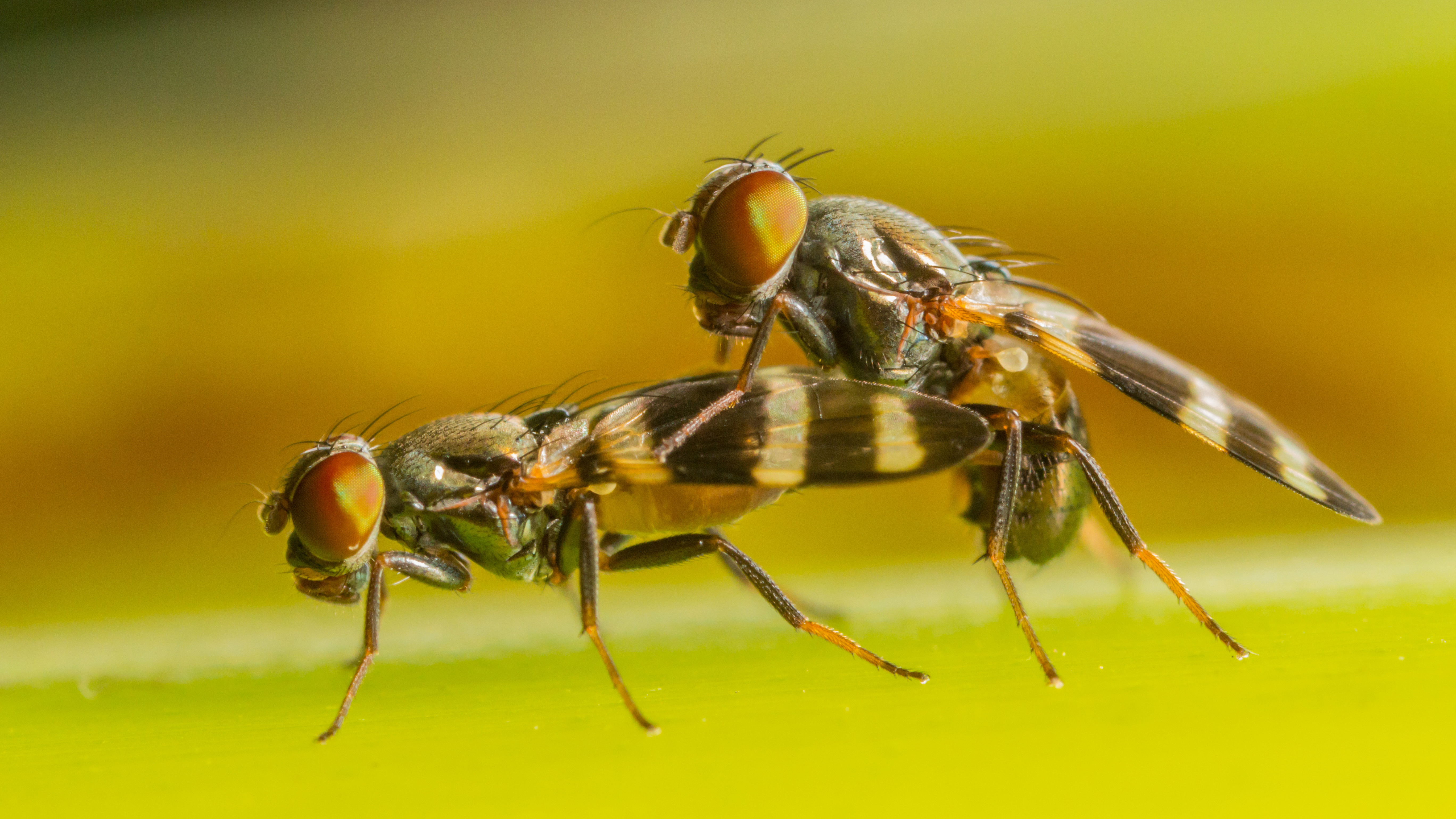Sexually Deprived Male Fruit Flies More Likely To Hit The Bottle
In a story that surely breaks The Independent's record for the number of times the word "ejaculation" is used—11, or 12 if you count the photo caption—the paper reports on the results of a study that found sexually frustrated male fruit flies are more likely to choose alcohol "to gain an alternative reward." The study's results, published in the journal Current Biology, may help scientists understand the biological process of addiction.
Sure, that's fascinating and all, but mostly we have questions about the, shall we say, methodology of this research. Were a bunch of voyeuristic, lab coat-clad scientists spying on the flies' intimate moments? Thankfully, not quite. Researchers manipulated the flies' brains to produce a chemical called CRZ when the flies are exposed to red light; CRZ has been found to trigger the flies' uh, sexual release. The scientists found that, even in the absence of female flies or their pheromones, male flies spent an awful lot of time hanging out in that red light. (Author's note: Ew.)
The flies who spent a lot of time in the red light enjoying red-light-type activities were found to have brains containing higher levels of neuropeptide F, a biological "reward." When those satisfied flies were presented with non-alcoholic and alcoholic food after a few days, they were more likely to choose the non-booze option. On the other hand, male flies who had been deprived of the red light chose the alcoholic option more frequently.
"Male flies that are sexually deprived have increased motivation to consume alcohol as an alternative reward," Galit Shohat-Ophir, one of the study's authors, commented.
Fruit flies aren't humans, clearly, but the scientists speculate that these conclusions could help them understand human addiction. They note that in most animals, artificial drugs use the same neurological mechanisms as natural rewards. As The Independent puts it, "The researchers speculated that an individual's vulnerability to addiction is therefore influenced by the amount of 'rewards' they have received from other sources."
